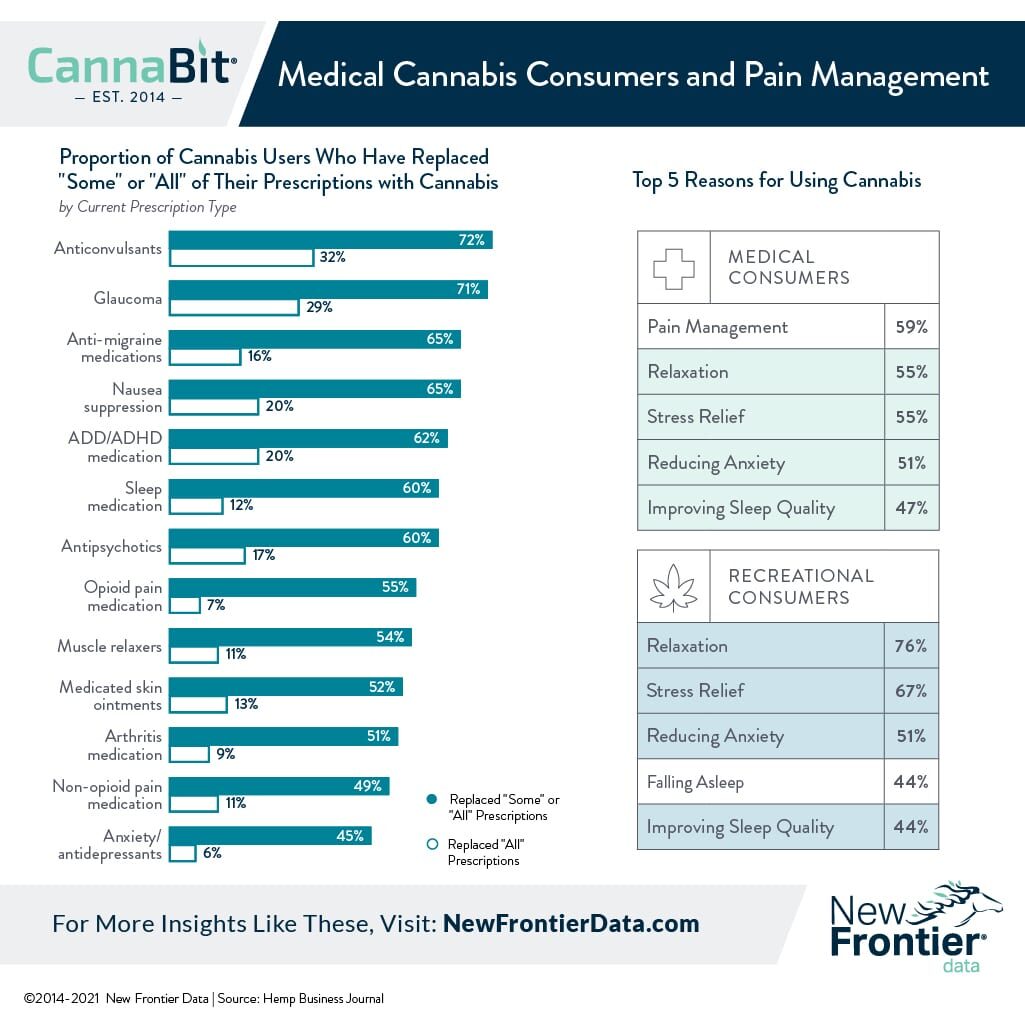Medical Cannabis Consumers and Pain Management

The Medical Cannabis Consumer in 2021
May 2, 2021
U.S. Medical Cannabis Market Projected to Almost Double to Over $16 Billion by 2025
May 11, 2021By Josh Adams, Ph.D., Senior Industry Analyst, New Frontier Data
Access to cannabis in the United States has been expanding at an unprecedented rate. The trend is especially true for medical cannabis. Presently, 16 states and the District of Columbia have adult-use cannabis markets, while 36 states have established medical markets. While the bulk of the cannabis market involves adult-use consumers, the number of registered medical cannabis patients in currently legalized states is forecast to grow to 4.9 million by 2025.
As research expands into medical applications for cannabis, patients are increasingly looking to it as an alternative to other, more harsh or addictive therapeutic interventions. New Frontier Data’s newest report, Medical Cannabis & Pharmaceuticals: Growth & Disruption in U.S. Healthcare, examines how consumers actively integrate medical cannabis as part of ongoing therapeutic treatments. Additionally, the report examines the potential for the medical cannabis market to cannibalize some segments of the more traditional pharmaceutical market.
Pain management is one among key applications identified by medical cannabis consumers as reason for their use. Research into the medical applications of cannabis has found support for its use as an analgesic. Additionally, with the explosion of opioid use over the past two decades — and the attendant issues of addiction and dependence associated with opiates — medical cannabis has shown promise as an alternative means for pain management. Indeed, New Frontier Data recently found 45% of all cannabis consumers reporting pain management as one of their top reasons for cannabis use, with 59% of medical consumers citing it.
Beyond identifying general reasons for using cannabis, 29% of medical consumers indicated pain among the specific medical conditions they were treating with cannabis. Medical cannabis consumers were asked whether they were prescribed specific types of medications, and whether they had replaced either some or all of those prescriptions with cannabis. For consumers indicating that they were prescribed opioids for pain management, 48% reported having replaced some of their prescribed medication with cannabis; 7% indicated replacing all of their prescribed medications. Among consumers prescribed non-opioid analgesics, 38% said they had replaced some of their prescribed medication, while 11% replaced all prescribed medications with cannabis.
New Frontier Data also asked medical cannabis consumers about the impact which cannabis has had on their specific medical conditions. Overall, most medical cannabis consumers reported positive outcomes: Over half (52%) of medical consumers said that their medical condition had improved significantly with the use of cannabis, with an additional 41% indicating that their respective medical condition had improved slightly.
The research draws extensively from New Frontier Data’s U.S. cannabis consumer survey, in continuation of its series of ongoing consumer research examining legal cannabis markets in the United States and globally.




